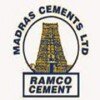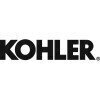Filter interviews by
Grasim Industries Electrical Technician Interview Questions and Answers
Grasim Industries Electrical Technician Interview Experiences
2 interviews found
I applied via Recruitment Consulltant and was interviewed in Aug 2021. There were 2 interview rounds.
(1 Question)
- Q1. Technical Related Questions and Answer your Qualifications And Experience
(8 Questions)
- Q1. What are your salary expectations?
- Q2. What is your family background?
- Q3. Share details of your previous job.
- Q4. Why should we hire you?
- Q5. Why are you looking for a change?
- Q6. Where do you see yourself in 5 years?
- Q7. What are your strengths and weaknesses?
- Q8. Tell me about yourself.
Interview Preparation Tips
Fastest growing company in chemical businesses
I applied via Recruitment Consulltant and was interviewed before Apr 2021. There was 1 interview round.
(1 Question)
- Q1. Your Study Related Job.....
Interview Preparation Tips
Thank you so much
Top trending discussions






Interview questions from similar companies

Electrical Engineer Interview Questions & Answers
Dalmia Bharat Cementposted on 21 Dec 2024
I applied via LinkedIn and was interviewed before Dec 2023. There was 1 interview round.
(2 Questions)
- Q1. What is the process of power distribution?
- Ans.
Power distribution is the process of delivering electricity from power plants to consumers through a network of transmission and distribution lines.
Electricity is generated at power plants using various sources such as coal, natural gas, nuclear, or renewable energy.
The electricity is then transmitted at high voltages over long distances through transmission lines to substations.
At substations, the voltage is reduced a...
- Q2. What are the different types of sources of electricity?
- Ans.
Different types of sources of electricity include fossil fuels, nuclear power, renewable energy sources, and batteries.
Fossil fuels (coal, oil, natural gas)
Nuclear power
Renewable energy sources (solar, wind, hydro, geothermal)
Batteries (lithium-ion, lead-acid)

I applied via Referral and was interviewed before Jan 2023. There was 1 interview round.
(3 Questions)
- Q1. LRS working principle and slip ring .
- Q2. About Transformers maintanabace
- Q3. HT and LT motors maintanace
Interview Preparation Tips

I applied via Job Fair and was interviewed in Sep 2024. There was 1 interview round.
(5 Questions)
- Q1. What is Ohm's Law?
- Ans.
Ohm's Law states that the current flowing through a conductor is directly proportional to the voltage applied across it, and inversely proportional to the resistance of the conductor.
Ohm's Law is represented by the formula V = IR, where V is voltage, I is current, and R is resistance.
It helps in calculating the relationship between voltage, current, and resistance in an electrical circuit.
For example, if a circuit has ...
- Q2. What are Transformer protection?
- Ans.
Transformer protection refers to the measures taken to ensure the safe operation of transformers and prevent damage.
Overcurrent protection: Protects against excessive current flow.
Overvoltage protection: Safeguards against high voltage levels.
Overtemperature protection: Prevents overheating of the transformer.
Differential protection: Detects internal faults by comparing input and output currents.
Buchholz relay: Detects...
- Q3. Your computer knowledge?
- Ans.
Proficient in computer hardware, software, and programming languages relevant to electrical engineering.
Skilled in using CAD software for circuit design
Familiar with programming languages like C, Python, and MATLAB for simulations
Knowledge of microcontrollers and embedded systems programming
Experience with PLC programming for automation systems
- Q4. What is motor protection?
- Ans.
Motor protection is a system designed to prevent damage to motors from electrical faults or overloads.
Motor protection devices include overload relays, thermal protectors, and circuit breakers.
These devices monitor the current and temperature of the motor to prevent overheating and damage.
Motor protection also involves proper grounding, insulation, and regular maintenance to ensure safe operation.
Examples of motor prot...
- Q5. What is your hobbies?
- Ans.
My hobbies include playing the guitar, hiking, and photography.
Playing the guitar helps me relax and express my creativity.
Hiking allows me to explore nature and stay active.
Photography is a passion of mine, capturing moments and scenes in a unique way.

Electrical Engineer Interview Questions & Answers
Dalmia Bharat Cementposted on 17 Jan 2021
Interview Questionnaire
4 Questions
- Q1. 1. Induction motor starting principle
- Ans.
The induction motor starting principle is based on the creation of a rotating magnetic field.
An induction motor starts by applying a voltage to the stator windings, creating a rotating magnetic field.
The rotating magnetic field induces currents in the rotor windings, which in turn creates a magnetic field.
The interaction between the stator and rotor magnetic fields causes the rotor to start rotating.
Different methods l...
- Q2. 2. Describe about transformer parts.
- Ans.
Transformer parts include core, windings, insulation, and cooling system.
The core is made of laminated iron or steel and provides a path for magnetic flux.
Windings consist of primary and secondary coils, which are insulated copper wires.
Insulation materials like paper, varnish, or oil are used to insulate the windings.
Cooling systems such as fans, radiators, or oil pumps are used to dissipate heat.
Other parts include b
- Q3. 3. How over current protection, differential protection and earth fault protection work.
- Ans.
Over current protection, differential protection, and earth fault protection are methods used to safeguard electrical systems.
Over current protection is used to detect and interrupt excessive current flow in a circuit.
Differential protection compares the current entering and leaving a component to detect faults.
Earth fault protection detects current leakage to the earth and isolates the faulty circuit.
Over current prot...
- Q4. 4. Cable construction and its layer.
- Ans.
Cable construction involves multiple layers for insulation and protection.
Cables are typically constructed with multiple layers for insulation and protection.
The innermost layer is the conductor, usually made of copper or aluminum.
The next layer is the insulation, which can be made of materials like PVC, polyethylene, or rubber.
Additional layers may include shielding to protect against electromagnetic interference.
The ...

I applied via Naukri.com and was interviewed in Jun 2021. There were 5 interview rounds.
Interview Questionnaire
2 Questions
- Q1. Types of motor
- Ans.
There are various types of motors used in electrical engineering, including AC motors, DC motors, stepper motors, and servo motors.
AC motors: Alternating current motors that are commonly used in household appliances and industrial machinery.
DC motors: Direct current motors that are often used in battery-powered devices and electric vehicles.
Stepper motors: Motors that move in discrete steps and are commonly used in rob...
- Q2. 2 types of motor generally used in plant
- Ans.
The two types of motors generally used in plants are AC motors and DC motors.
AC motors are commonly used for high-power applications and are more efficient.
DC motors are often used for low-power applications and provide better speed control.
Examples of AC motors include induction motors and synchronous motors.
Examples of DC motors include brushed DC motors and brushless DC motors.
Interview Preparation Tips


(1 Question)
- Q1. Electrical engineering related questions
(1 Question)
- Q1. Tell me about yourself.
Interview Preparation Tips

Electrical Engineer Interview Questions & Answers
Aditya Birla Groupposted on 30 Apr 2023
I applied via Recruitment Consulltant and was interviewed in Oct 2022. There were 2 interview rounds.

(2 Questions)
- Q1. What is Dc current ?
- Ans.
DC current is the flow of electric charge in a constant direction.
DC stands for Direct Current.
It is the type of electric current that flows in a single direction.
DC current is produced by sources such as batteries, fuel cells, and solar cells.
It is commonly used in electronic devices and power transmission systems.
Unlike AC (Alternating Current), DC current does not change its direction over time.
- Q2. What is Dc Current?
- Ans.
DC current is the flow of electric charge in a single direction.
DC stands for Direct Current
It is produced by sources such as batteries, fuel cells, and solar cells
DC current is used in electronic devices such as computers, televisions, and radios
DC current is measured in amperes (A)

I applied via Recruitment Consultant and was interviewed in Nov 2021. There was 1 interview round.
Interview Questionnaire
1 Question
- Q1. How to Lrs and grr working principal
- Ans.
LRS and GRR are not commonly used acronyms in the field of electrical engineering.
LRS and GRR are not widely known acronyms in the electrical engineering field.
There is no specific working principle associated with LRS and GRR as they are not commonly used terms.
It is possible that LRS and GRR are specific to a certain company or industry, in which case their working principles would need to be explained within that co
Interview Preparation Tips
Grasim Industries Interview FAQs
Tell us how to improve this page.
Grasim Industries Interviews By Designations
- Grasim Industries Assistant Manager Interview Questions
- Grasim Industries Territory Sales Manager Interview Questions
- Grasim Industries Junior Engineer Interview Questions
- Grasim Industries Territory Sales Executive Interview Questions
- Grasim Industries Assistant Engineer Interview Questions
- Grasim Industries Senior Engineer Interview Questions
- Grasim Industries Diploma Trainee Engineer Interview Questions
- Grasim Industries Production Engineer Interview Questions
- Show more
Interview Questions for Popular Designations
- Electrical Engineer Interview Questions
- Diploma Electrical Engineer Interview Questions
- Electrical Supervisor Interview Questions
- Electrical Maintenance Engineer Interview Questions
- Electrical Maintenance Technician Interview Questions
- Senior Electrical Technician Interview Questions
- Electrical Foreman Interview Questions
- Junior Engineer Electrical Interview Questions
- Show more
Interview Questions from Similar Companies
Fast track your campus placements
Grasim Industries Electrical Technician Reviews and Ratings
based on 13 reviews
Rating in categories
|
Assistant Manager
649
salaries
| ₹5.5 L/yr - ₹15.2 L/yr |
|
Assistant Engineer
435
salaries
| ₹3 L/yr - ₹7.7 L/yr |
|
Territory Sales Manager
339
salaries
| ₹4 L/yr - ₹11 L/yr |
|
Deputy Manager
299
salaries
| ₹5 L/yr - ₹19 L/yr |
|
Junior Engineer
295
salaries
| ₹2.2 L/yr - ₹6.2 L/yr |

UltraTech Cement

JK Cement

Shree Cement

Dalmia Bharat Cement
- Home >
- Interviews >
- Grasim Industries Interview Questions >
- Grasim Industries Electrical Technician Interview Questions
















